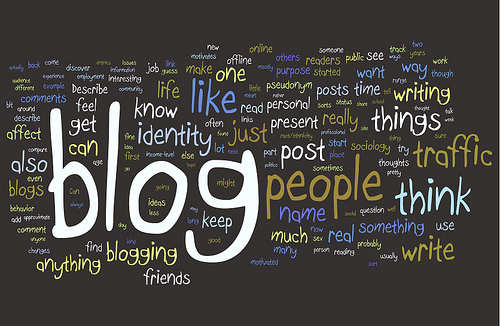In ch. 2, Briggs discusses the important and evolving role of blogging in the journalism community. While blogging originally started as a way for users to share their opinions with readers and other bloggers, most major news outlets now use blogs to cover newsworthy stories. Professional journalists are now terming themselves “bloggers.”
One of the first points Briggs makes is that good blogs are an on going conversation. They are intended to generate feedback with the readers. Once an author posts material on their blog, they should monitor feedback and respond as much as possible, much like a normal conversation. This is similar to the work of the community aggregator for our class projects. They’re job is to engage the community and generate this type of conversation.
Briggs also reminds readers that blogs are not magic. Merely posting content on a blogging site will not attract readers. Blogs take dedication. Not only is it important to put quality content on your blog, but just as stated before, interaction with readers is key. Generating your own publicity for your blog is the only way you will attract readers. Much like our class group blogs, it is up to us to get our information to the public.
Finally, Briggs tells readers to be the authority and write with personality. Study what you are writing and be able to speak with confidence. For our projects, we had to do a lot of researching and interviewing to gets accurate and interesting information. It took a lot of effort to get material that would allow us to write with personality. Being able to be an authority figure for information and write in a personable tone will make your blog more appealing to the readers.
It is clear that blogs have found their place in the journalism world. Not only a great source of accurate information, they are also a great way for beginning journalists to cover anything they would like.
